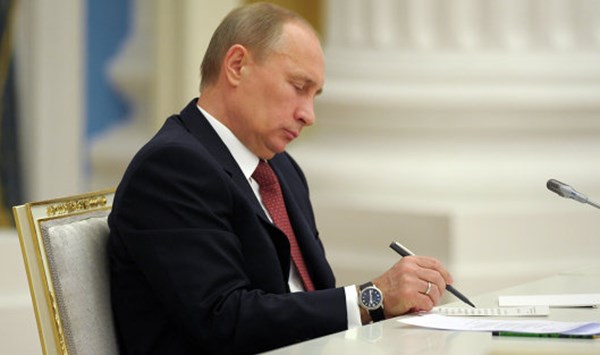Putin signs bill on counter-sanctions against US and sets sights on money from China
On Monday, Russian President Vladimir Putin signed a bill on counter-sanctions against the US and other “hostile foreign countries”, which was drafted in response to the blacklisting of billionaires Viktor Vekselberg and Oleg Deripaska, together with all the companies belonging to them.
According to the document uploaded to the legal information portal, the Russian government is given the right to terminate international collaboration with countries which have introduced anti-Russian sanctions, as well as legal entities and organizations which are “directly or indirectly controlled by hostile countries”.
They can be banned from exporting any goods into Russia aside from “vitally necessary goods, of which analogues are not produced in Russia”, from importing any goods from Russia, including raw materials, and from participating in state purchases and privatization.
The next step on Putin’s foreign policy agenda will be a visit to China, said presidential assistant Yuriy Ushakov.
Putin will attend the Shanghai Cooperation Organization (SCO) summit in Qindao. The day before the summit begins – June 8 – he will ride on a new high-speed train to Tianjin and meet with Chinese President Xi Jinping, presidential spokesperson Dmitry Peskov told the newspaper Izvestia.
At the SCO summit, Putin will discuss the possibilities of attracting investments into the Russian economy, Ushakov noted, clarifying that this would involve transport, energy, agriculture and infrastructural projects.
Statistics from Russia’s Central Bank suggest that China is still in no hurry to invest in Russian projects. At the start of 2018, China’s total direct investment in Russia was $4.4 billion – 37 times less than what came from Cyprus ($163 billion), and 10 times less than from the Netherlands, and four times less than from Germany.
Compared to 2014, when Russia’s relations with the West deteriorated sharply and a decision was made to bring the foreign policy back to the East, the amount of investments has not only failed to grow, but has even shrunk – by $100 million, or 2.2%.
Russia’s previous attempt to attract Chinese money took place as part of the Eastern Economic Forum (EEF) in October last year, and was unsuccessful.
Although Putin’s authorized representative to the Fear Eastern Federal District Yuriy Trutnev reported that 217 agreements had been signed, amounting to 2.5 trillion rubles, in actual fact this investment boom proved to be a chimera, explained Vasily Nosov, analyst at Sberbank’s Macreconomic Research Center: “Most of the agreements were of a ‘memorandum of understanding’ nature – these are in no way binding documents, they are only a declaration, and do not reflect real investments.”
The only real major purchase-sale deal at the EEF was an agreement to resell a 14.2% share of Rosneft to the Chinese company CEFC for $9.1 billion, Nosov explained. Ultimately even this deal fell through. The company’s CEO Ye Yanmin was arrested on charges of economic crimes, and the China Development Bank refused to credit the deal.
